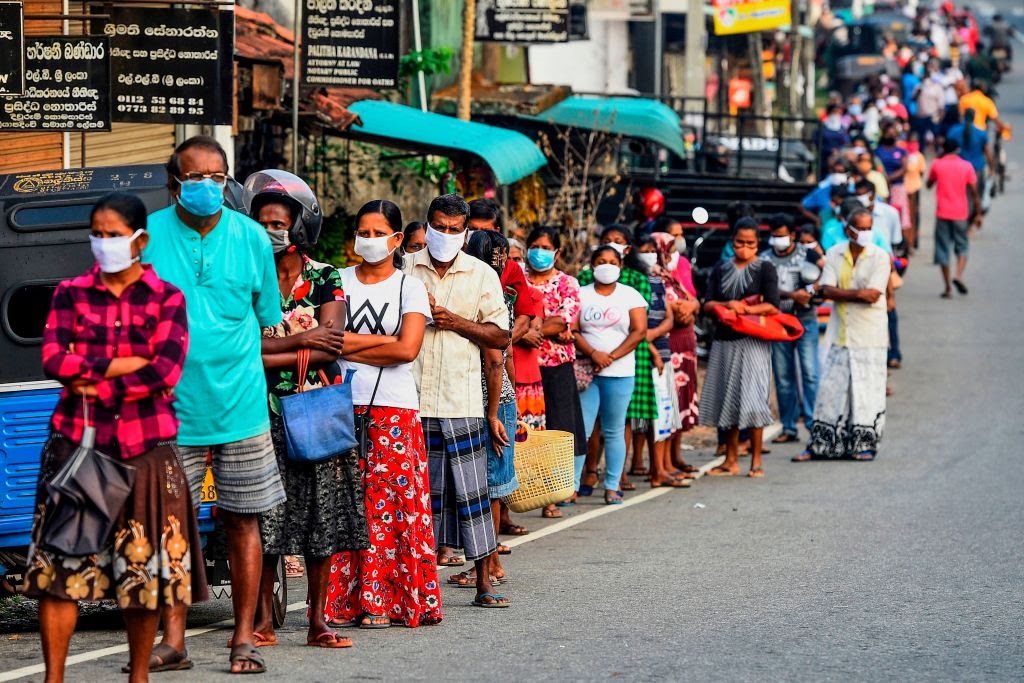The mounting human toll and global economic fallout triggered by the pandemic, increases the requirement of upgrading health care facilities and provision of daily essentials to protect their people, especially the poorest and most vulnerable in the region - stated at the South Asia Economic Focus, Spring 2020 published by World Bank in April 2020. “Let’s not forget this is essentially a human crisis. Most fundamentally, we need to focus on people – the most vulnerable” said António Guterres, UN Secretary-General at the UN framework for the immediate socio-economic response to COVID-19. It further says immediate development responses in this crisis should be undertaken with an eye to the future. Development routes of the countries in the long-term will be affected by the choices they make now and the support received by them.
The South Asia context:
As of today, 5 May 2020, in six South Asian countries (Bangladesh, Bhutan, India, Nepal, Pakistan and Sri Lanka) the deceased remains as 2,038 while having 74,360 COVID-19 confirmed cases. So far, Bhutan, Nepal and Sri Lanka are having very less infected cases compared to rest of the countries and Bhutan and Nepal have not experienced any reported deaths. The countries are at lockdown or under curfew imposed by the respective governments in order to maintain social distancing, thereby to regulate spreading of the virus. Bangladesh executed the lockdown starting from 26 March that will continue until 16 May. Whereas Bhutan, with lowest number of confirmed cases in the region is operating business at low key. India, is suffering with highest death toll and the government extended the lockdown until 17 May. Nepal is having second lowest number of confirmed cases, still the government decided to extend the lockdown until 7 May as a precaution. Although COVID-19 cases continue to rise in the country, Pakistan authorities have decided to go for a “smart lockdown” - all businesses are open and still need to follow the Standard Operation Procedure imposed by the government. Also, the lockdown has been extended until 9 May. Sri Lanka having being imposed countrywide curfew on 14 March lifted and re-imposed curfew at several times for certain districts other than four high risk districts - that are having highest number of COVID cases. The Government of Sri Lanka has not given a clear indication on the exact day to lift curfew and as of today, it is expected to start the operations in the country from 11 May with critical operational staff and with strict guidelines.
WHO situation map on the global COVID-19 pandemic
It is obvious that once the health crisis is over, people should not practice business-as-usual and impose pressure on biodiversity and ecosystems, since resilience of our socio-economic systems depend on the state of the natural environment. The guiding reference throughout our response, must remain with 2030 Agenda for Sustainable Development and its central promise to ‘leave no one behind’ even though the risks of leaving many behind from life-saving measures are greater today due to limited resources and weaker social protection systems.
As the world focuses on how to re-build people’s sanitation and health, it is easily reminded that, we all share one source of water. Therefore, during these difficult times, GWP’s unique global network will remain in keeping attention on the water security agenda. Managing our waters is a task for everyone, and GWP will continue to promote and support good water management practices and participatory decision making in societies.
“In times of a health crisis of this scale, access to clean water and sanitation is more important than ever. It underlines the urgency to act what GWP’s 2020-2025 Strategy calls for,” said GWP Executive Secretary Monika Weber-Fahr at her recent announcement. GWP also signed an Open Letter to global leaders, coordinated by the Club of Rome. The letter states that it is important to acknowledge that the planet is facing a deeper and longer-term crisis, and calls for collaborative leadership to lead transformational change for a ‘healthy planet for healthy people’, a call echoed by GWP’s new strategy.
“As long as the COVID-19 pandemic continues, GWP’s particular focus will be on:
- keeping attention on the water security agenda and on climate resilience;
- convening participatory approaches – including mobilising those whom the COVID crisis is pushing aside - working across and beyond the water space;
- developing pragmatic water solutions for (re)building public health and economies, with particular attention to Disaster Risk Reduction (DRR) and emergency protocols, and;
- Learning and collaborating online and through our network, consisting of 3,000+ Partners, including, importantly, Cap-Net UNDP.
Many essentials must continue, and among these, GWP is taking smart decisions on how we use and safeguard our water and how we protect ourselves from water-related hazards, such as floods and droughts as the climate crisis continues. GWP is also further strengthening its support to its Partners and allies through the The Water Changemakers Award 2020, launched on World Water Day (22 March). The competition seeks to recognise organisations and individuals that manage water in a climate resilient way, and to find new solutions to water management challenges.
Photo credit: Ishara S. Kodikara / Associated Free Press
